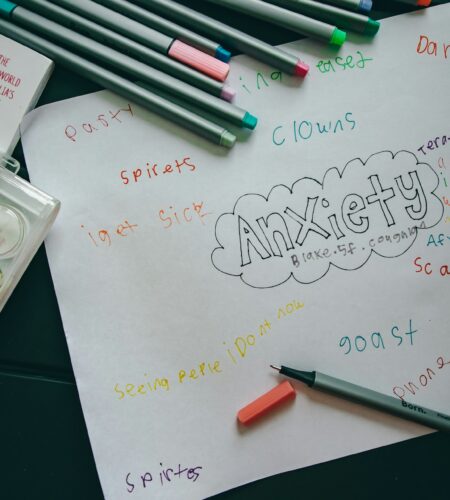Anxiety is a common issue that affects millions of people worldwide. Whether it’s due to work stress, personal relationships, or financial worries, anxiety can be overwhelming and debilitating. If you’re struggling with anxiety, you’re not alone.
This blog post aims to provide effective coping strategies and techniques to help you manage and cope with anxiety.
From understanding the root causes to implementing practical solutions, you’ll find valuable psychotherapy tips that can significantly improve your mental health and overall well-being.
Understanding Anxiety
Understanding anxiety is crucial for maintaining overall well-being. Anxiety is a natural stress response, manifesting as fear or apprehension about future events.
However, when anxiety becomes overwhelming, it can disrupt daily life and impact both mental and physical health. The following symptoms are common indicators of anxiety:
- Restlessness: A perpetual state of unease and inability to relax.
- Increased Heart Rate: Your heart may feel like racing or pounding.
- Rapid Breathing: You might experience shallow or quickened breaths.
- Difficulty Concentrating: Staying focused becomes challenging.
Recognizing these symptoms early is essential for seeking appropriate treatment and anxiety management. Understanding the science behind anxiety can empower individuals to take proactive steps toward better health and well-being.
Identifying the Root Causes
Understanding the underlying causes of your anxiety is crucial for effective stress relief management. It can stem from various sources, including genetic factors, environmental influences, and traumatic experiences. Here are some key factors to consider:
- Genetic Predisposition: Studies have shown that anxiety can run in families. If you have a close relative with an anxiety disorder, you may be more likely to experience it yourself.
- Environmental Triggers: Situational factors such as job pressure, financial instability, and personal relationships can contribute significantly to anxiety levels. Identifying these triggers can help manage them effectively.
- Traumatic Experiences: Past traumatic events can leave a lasting impact on your mental health. Therapy and counseling can help address these deep-seated issues.
By recognizing these root causes, you can take proactive steps to address and manage your anxiety more effectively.
Effective Coping Strategies
Managing anxiety effectively is crucial for maintaining a balanced and fulfilling life. Here are some essential coping strategies that can help you regain control and reduce the impact of anxiety on your daily routine:
- Mindfulness Meditation: Focus on the present moment to break the cycle of negative thoughts and alleviate stress.
- Physical Exercise: Engage in regular physical activity to boost your mood by releasing endorphins, which act as natural stress relievers. Aim for at least 30 minutes of exercise most days of the week.
- Deep Breathing Exercises: Practice inhaling deeply through your nose and exhaling slowly through your mouth to calm your mind and lower stress levels.
By incorporating these techniques into your routine, you can effectively manage anxiety and improve your overall well-being.
Techniques for Stress Relief
Stress relief is an integral part of anxiety management, and implementing effective techniques can significantly alleviate symptoms and improve mental health. Here are three proven psychotherapy tips and methods to help you manage stress:
- Journaling: Writing down your thoughts and feelings can be a therapeutic way to deal with anxiety. It helps you understand your emotions better and identify patterns that trigger anxiety.
- Progressive Muscle Relaxation: This technique involves tensing and then slowly relaxing each muscle group in your body. It helps reduce physical tension and promotes relaxation.
- Aromatherapy: Essential oils like lavender and chamomile can create a calming environment. Aromatherapy can be a simple yet effective way to reduce anxiety.
By incorporating these techniques into your daily routine, you can take proactive steps toward managing stress and enhancing your overall well-being.
The Role of Psychotherapy
Psychotherapy plays a crucial role in treating anxiety by addressing its root causes through various effective methods. Key forms of psychotherapy include:
- Cognitive Behavioral Therapy (CBT): This widely-used approach helps individuals recognize and change negative thought patterns, replacing them with positive ones. CBT is particularly beneficial for those suffering from anxiety disorders.
- Exposure Therapy: This method involves facing fears in a controlled environment, gradually desensitizing individuals to anxiety triggers, and reducing avoidance behaviors.
- Support Groups: Joining a support group offers a sense of community and belonging. Sharing experiences with others who understand can be incredibly comforting and empowering.
Each of these therapeutic approaches can significantly contribute to anxiety management, providing relief, and improving overall well-being.
When to Seek Professional Help
While self-help coping strategies are beneficial, there are times when professional help is necessary. Knowing when to seek help can make a significant difference in your recovery. Here are key indicators that it may be time to consult with a mental health professional at WG Psychology:
- Severe Symptoms: If your anxiety is severe and affecting your daily life, it’s essential to seek professional help. Symptoms like panic attacks or severe avoidance behavior should not be ignored.
- Lack of Improvement: If you’ve tried various self-help techniques and see no improvement, it may be time to consult a mental health professional. A therapist can provide personalized treatment plans tailored to your needs.
- Medication: In some cases, medication may be necessary to manage anxiety. Always consult a healthcare provider before starting any medication.
By recognizing these signs, you can take a crucial step toward professional assistance and significantly improve your mental well-being.
Conclusion
While anxiety can be a formidable challenge, it is a manageable condition with the coping strategies and support systems in place.
By gaining a thorough understanding of its root causes, implementing effective coping techniques, and seeking professional assistance when necessary, individuals can significantly enhance their mental health and overall quality of life.
Remember, managing anxiety is a continuous process, and it’s okay to seek help. For those looking for personalized guidance, consider booking a session to explore tailored strategies for your unique needs.
Subscribe to our email newsletter to get the latest posts delivered right to your email.

